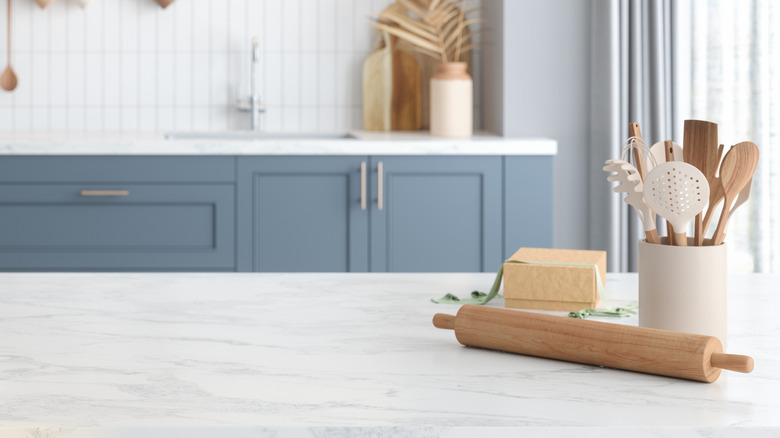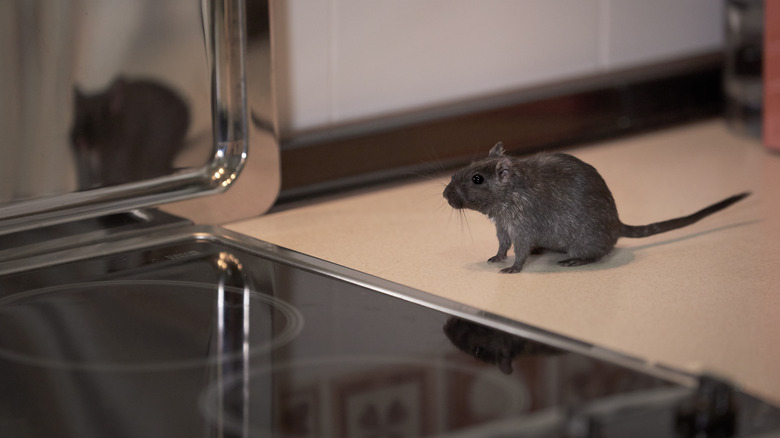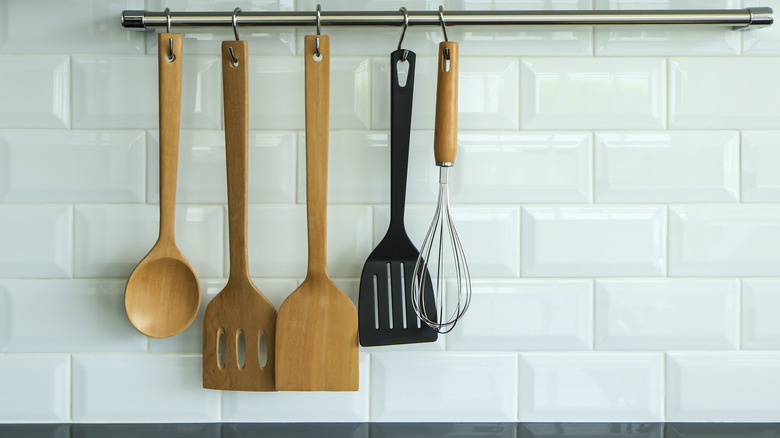Think Twice Before Storing These Kitchen Essentials On Your Countertop
When cooking, it often helps to have everything you need within arm's reach. Having spices right by the stove and a cutting board nearby can save time and help you finish preparing a meal more efficiently. For this reason, many people leave cooking utensils on the counter. While it might seem convenient, you may want to think twice about storing these items on your countertops as the habit comes with a few hidden downsides that can impact your kitchen's functionality, hygiene, and possibly your health.
If you do this, you're not alone. It's not uncommon to see a host of spatulas, whisks, and spoons sprawled across a countertop, especially in homes where a lot of cooking occurs. While this can make cooking easier, a major motivator concerns the lack of storage. Cooking utensils are big and bulky with various shapes, which makes fitting them in a drawer a little tricky. When you are low on storage, it's even more challenging. Still, keeping utensils out can be one of the biggest clutter contributors in your kitchen. Consequently, a strategic relocation could be the key to a cleaner and smarter setup.
Utensils can get contaminated when left out
While a stellar spread of your cooking utensils may seem impressive to guests, it may not be as appetizing or efficient as you think. You could reach for your go-to spatula only to find it coated in a film of grease and dust, which you have to wash off before using the utensil. Despite our best efforts, countertops are magnets for airborne dust, food splatters, and other unseen grime. Leaving your utensils out essentially invites them to become contaminated in some way. This can transfer pathogens to your food, raising the risk of foodborne illness.
In addition, critters can step across your utensils without your knowledge. Of course, if you have pets, especially cats, they may walk across your countertops regularly or wait until you go out or sleep before they traipse across your counters, leaving fur flying about. Yet pets aren't the only contamination hazard or even the worst. Mice and insects, which tend to be more active at night, can also run across your utensils, and then you may wake up and use them without cleaning them, not knowing they have been contaminated. Mice can carry hantavirus and several types of bacteria, so storing your utensils helps protect you.
Efficient ways to store cooking utensils
Once you know that leaving out utensils isn't the best idea, you must still tackle where to store them. A few practical and stylish solutions can help you attain a perfectly organized kitchen. First, consider your drawer space. While cutlery drawers are usually too shallow to house cooking utensils, you may want to try a deeper drawer, especially if it is close to your cooking zone. You can also purchase deep drawer organizers to categorize what's in there, making it easy to find what you need while cooking. Drawer dividers can further maximize space and prevent utensil chaos.
Another option is to utilize your wall space — Utensil rails mounted above your countertop offer accessibility and a touch of charm. Choose a style that complements your kitchen decor and hang frequently used utensils for easy grabbing. It is best to keep it out of the immediate cooking zone, so grease doesn't accumulate. Of course, the ideal storage solution depends on your kitchen layout, cooking style, and personal preferences. Experiment with different options and find the one that works best for you.


